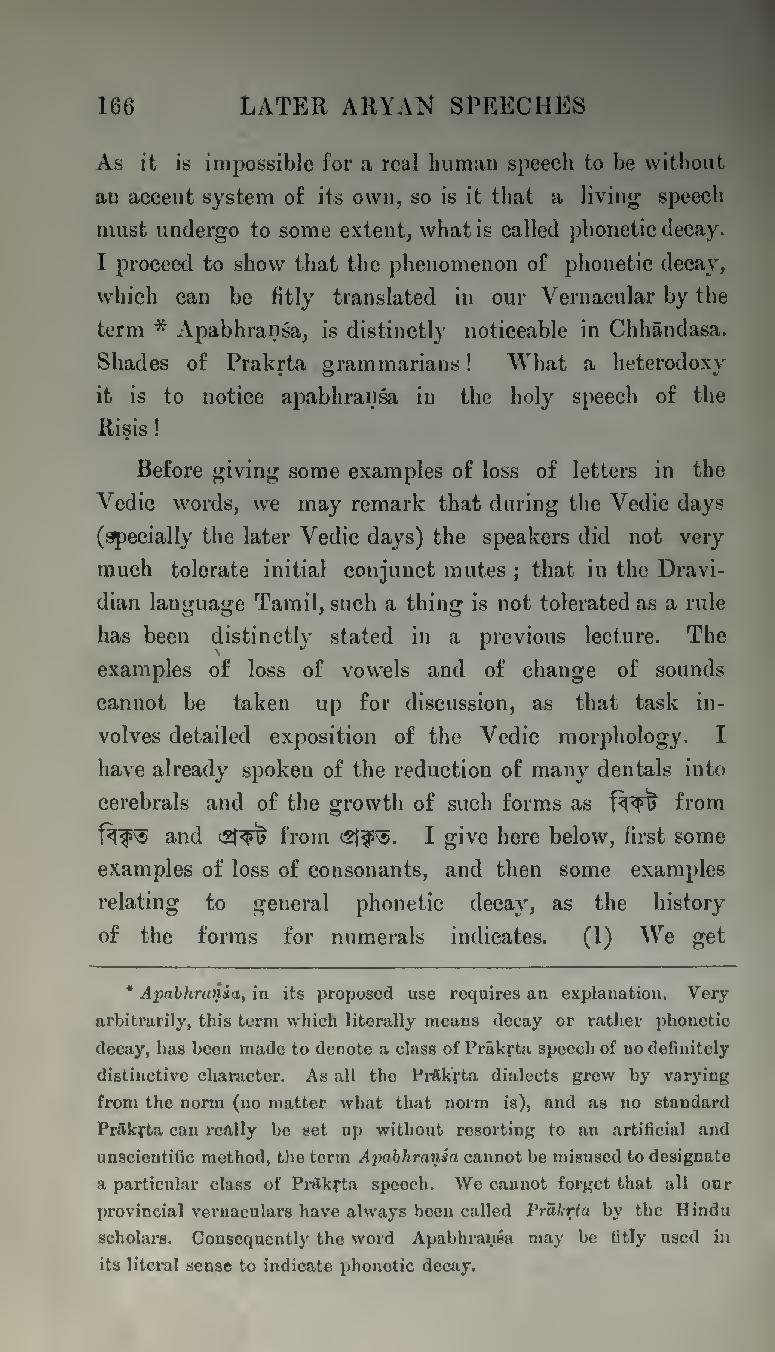As it is impossible for a real human speech to be without an accent system of its own, so is it that a living speech must undergo to some extent, what is called phonetic decay. I proceed to show that the phenomenon of phonetic decay, which can be fitly translated in our Vernacular by the term[1] Apabhraṇśa, is distinctly noticeable in Chhāndasa. Shades of Prākṛta grammarians! What a heterodoxy it is to notice apabhraṇśa in the holy speech of the Riṣis!
Before giving some examples of loss of letters in the Vedic words, we may remark that during the Vetlic days (specially the later Vedic days) the speakers did not very much tolerate initial conjunct mutes; that iu the Dravidian language Tamil, such a thing is not tolerated as a rule has been distinctly stated in a previous lecture. The examples of loss of vowels and of change of sounds cannot be taken up for discussion, as that task involves detailed exposition of the Vedic morphology. I have already spoken of the reduction of many dentals into cerebrals and of the growth of such forms as বিকট from বিকৃত and প্রকট from প্রকৃত. I give here below, first some examples of loss of consonants, and then some examples relating to general phonetic decay, as the history of the forms for numerals indicates. (1) We get
- ↑ Apabhraṇśa, in its proposed use requires an explanation. Very arbitrarily, this term which literally means decay or rather phonetic decay, has been made to denote a class of Prākṛta speech of no definitely distinctive character. As all the Prākṛta dialects grew by varying from the norm (no matter what that norm is), and as no standard Prākṛta can really be set up without resorting to an artificial and unscientific method, the term Apabhraṇśa cannot be misused to designate a particular class of Prākṛta speech. We cannot forget that all our provincial vernaculars have always been called Prākṛta by the Hindu scholars. Consequently the word Apabhraṇśa may be fitly used in its literal sense to indicate phonetic decay.
